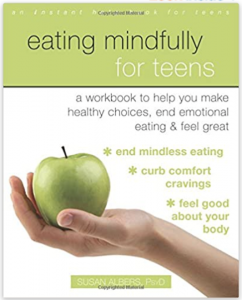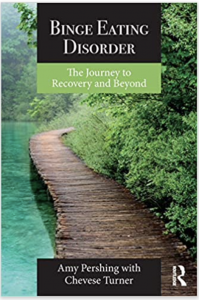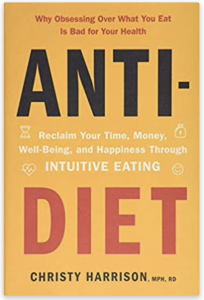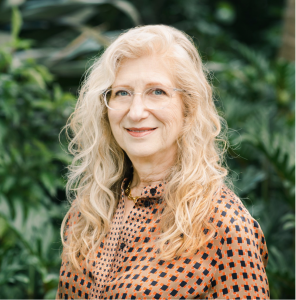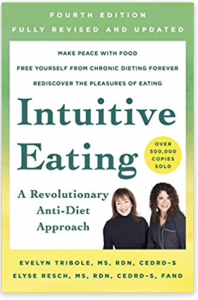
By IFEDD Member Elyse Resch, MS, RDN, CEDRD-S, FAND and Evelyn Tribole, MS, RDN, CEDRD-S
Reviewed for IFEDD by Haley Cox
Intuitive Eating is truly the one book I believe everyone should read. This book is for anyone who has ever struggled with food– clinicians, patients, or just the general person. From a clinician perspective, this book serves as a guide on how to begin to heal a patient’s relationship with food. Many EDD shun the thought of intuitive eating with eating disorders. However, actually all of these principles can be applied while working with an ED client. In chapter 16, “the ultimate path toward healing from eating disorders,” the authors share how the concept of intuitive eating process can be introduced and started in ED clients.
Evelyn and Elyse do a great job of providing a balance of science, examples, and what I like to call “powerful statements” in order to help engrain their concept into a reader’s mind. These “powerful statements” are scattered all throughout each chapter. One of my favorites that stuck with me is “A dieting body is a starving body.” The authors hook your attention with these statements and then expound upon them with correlating research and client examples. The science is not too “science-y” to be read and understood by the general population. Overall, this book provides all the information you would most likely want to know about intuitive eating. And in case you want more information, they provide endless resources within the book to continue one’s IE journey.
The only drawback to this book is the length. At around 300 pages it’s not exactly a quick read. If someone is not motivated to start this process or is not an avid reader, this book could be overwhelming at first. I really like the addition of the appendix at the back with step-by-step guidelines for how to start your IE journey. I think from a clinician and client perspective that the best way to read this book would be to read these step by step guidelines first, and then work through each step and corresponding chapter (s). I almost wish this were at the beginning instead of the end!
I highly recommend this book to all dietitians and every person I meet who voices their struggle with food. Elyse and Evelyn do an excellent job of laying out everything there is to know about the subject with clear step-by-step guidelines, provide honest expectations of how your brain and body may respond, and then encourage you to continue the journey. This book is a must-read!
https://www.amazon.com/Intuitive-Eating-4th-Anti-Diet-Revolutionary/dp/1250255198/

